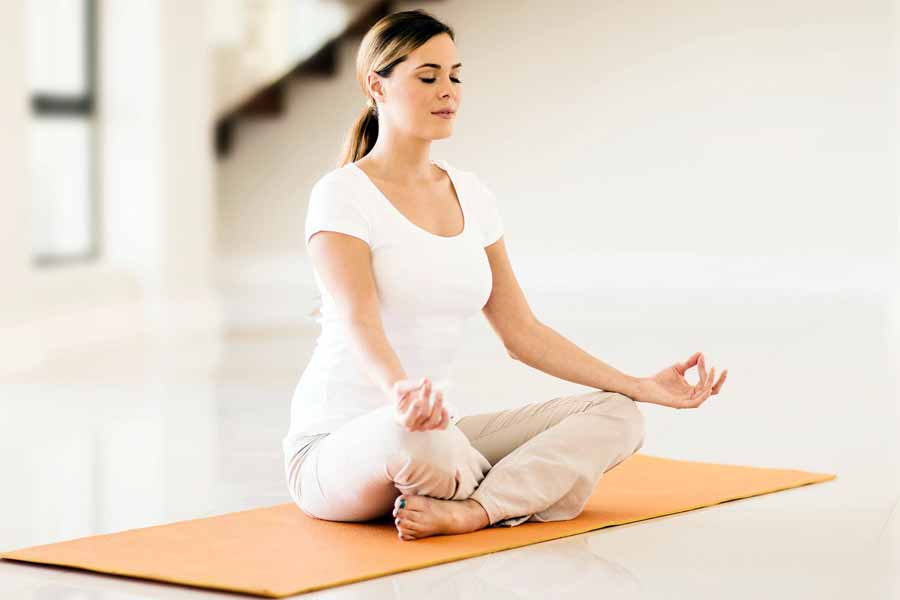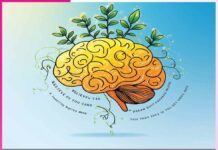Advantages of Meditation
Since time immemorial, meditation has been used to attain enlightenment. It was originally meant to help deepen understanding of the sacred and mystical forces of life. Some people have touted it as a means to get rid of misery.
These days, it is commonly used for relaxation and stress reduction. Experiences and modern research show that meditation is helpful for life goals as regular and diverse as overcoming a traumatic heartbreak to increasing daily productivity. Modern-day meditators’ call it the soul-food and suggest that its practice can unlock doors to a better life.
Meditation is considered a type of mind-body complementary medicine. It can produce a deep state of relaxation and a tranquil mind. During meditation, you focus your attention and eliminate the stream of jumbled thoughts that may be crowding your mind and causing stress. This process may result in enhanced physical and emotional well-being.
Also Read:
- Even the D.N.A. gets changed by virtue of Method of Meditation
- Meditation
- Safe Activities During Pregnancy
- How to Control Your Emotions?
- Leave It or Live It
Table of Contents
Benefits of Meditation

Meditation and Emotional Well-being
When you meditate, you may clear away the information overload that builds up every day and contributes to your stress. The emotional benefits of meditation can include:
- Gaining a new perspective on stressful situations
- Building skills to manage your stress
- Increasing self-awareness
- Focusing on the present
- Reducing negative emotions
- Increasing imagination and creativity
- Increasing patience and tolerance
Meditation and Illness
Meditation might also be useful if you have a medical condition, especially one that may be worsened by stress. While a growing body of scientific research supports the health benefits of meditation, some researchers believe it’s not yet possible to draw conclusions about the possible benefits of meditation.
With that in mind, some research suggests that meditation may help people manage symptoms of conditions such as:
- Anxiety
- Asthma
- Cancer
- Chronic pain
- Depression
- Heart disease
- High blood pressure
- Irritable bowel syndrome
- Sleep problems
- Tension headaches
Be sure to talk to your healthcare provider about using meditation if you have any of these conditions or other health problems. Meditation is not a replacement for traditional medical treatment. But it may be a useful addition to your other treatment.
Types of Meditation
Meditation is an umbrella term for the many ways to a relaxed state of being. There are many types of meditation and relaxation techniques that have meditation components. All share the same goal of achieving inner peace. Ways to meditate can include:
Guided Meditation:
Sometimes called guided imagery or visualization, with this method of meditation you form mental images of places or situations you find relaxing. Try to use as many senses as possible, such as smells, sights, sounds and textures. You may be led through this process by a guide or teacher.
Mantra Meditation:
In this type of meditation, you silently repeat a calming word, thought or phrase to prevent distracting thoughts.
Mindfulness Meditation:
This type of meditation is based on being mindful, or having an increased awareness and acceptance of living in the present moment. This broadens your conscious awareness. Focus on what you experience during meditation, such as the flow of your breath. Observe your thoughts and emotions but let them pass without judgment.
Transcendental Meditation:
It’s a simple, natural technique in which you silently repeat a personally assigned mantra, such as a word, sound or phrase, in a specific way. This form of meditation may allow your body to settle into a state of profound relaxation and your mind to achieve a state of inner peace.
Yoga:
You perform a series of postures and controlled breathing exercises to promote a more flexible body and a calm mind. As you move through poses that require balance and concentration, you’re encouraged to focus less on your busy day and more on the moment.
Practising Meditation
Here are some ways one can practice meditation whenever you choose:
Breathe Deeply:
This technique is good for beginners because breathing is a natural function. Focus all attention on breathing, concentrate on feeling and listening as you inhale and exhale through your nostrils. Breathe deeply and slowly. When your attention wanders, gently return your focus to your breathing.
Scan Your Body:
When using this technique, focus attention on different parts of your body. Become aware of your body’s various sensations, whether it’s pain, tension, warmth or relaxation. Combine body scanning with breathing exercises and imagine breathing heat or relaxation into and out of different parts of your body.
Repeat a Mantra:
You can create your own mantra, whether it’s religious or secular. Prayer is the best known and most widely practiced example of meditation. Spoken and written prayers are found in most faith traditions.
Walk and Meditate:
Combining a walk with meditation is an efficient and healthy way to relax. You can use this technique anywhere you’re walking, such as in a tranquil forest, on a city footpath or at the mall. Slow down your walking pace so that you can focus on each movement of your legs or feet.
Read and Reflect:
Many people report that they benefit from reading poems or sacred texts, and taking a few moments to quietly reflect on their meaning. You can also listen to sacred music, spoken words, or any music you find relaxing or inspiring. You may want to write your reflections in a journal or discuss them with a friend or spiritual leader.
Focus Your Love and Gratitude:
In this type of meditation, you focus your attention on a sacred image or being, weaving feelings of love, compassion and gratitude into your thoughts. You can also close your eyes and use your imagination or gaze at representations of the image.
Building Your Meditation Skills
Since meditation takes practice, don’t judge your meditation skills. Keep in mind that it’s common for your mind to wander during meditation no matter how long you’ve been practicing it. If you’re meditating to calm your mind and your attention wanders, slowly return to the object, sensation or movement you’re focusing on.
Experiment, and you’ll likely find out what types of meditation work best for you and what you enjoy doing. What matters is that meditation helps you reduce your stress and feel better overall.
Experiences of people show that repeating the God`s Words with pranayam is the best Method of Meditation and it yields desired results in minimum time slot. And this Method of Meditation is granted free of coast at Dera Sacha Sauda Sirsa by Revered Saint Dr Gurmeet Ram Rahim Singh Ji Insan.
More than 06 crore people across the globe are practicing this Method of Meditation and are leading a healthy & stress free life thereby setting an example for other people of the world.












































